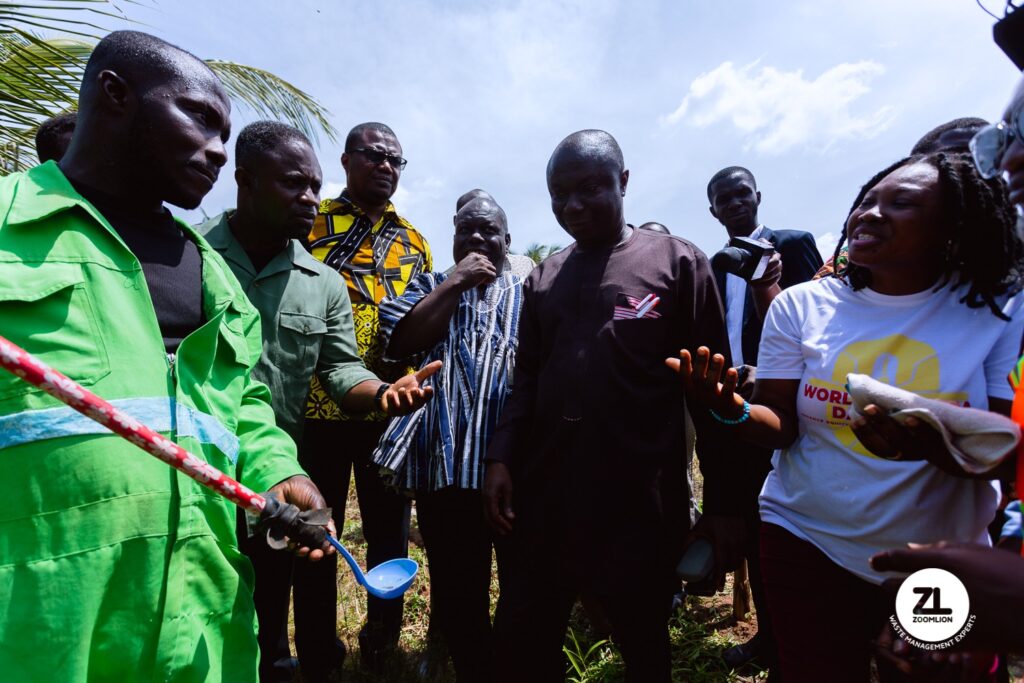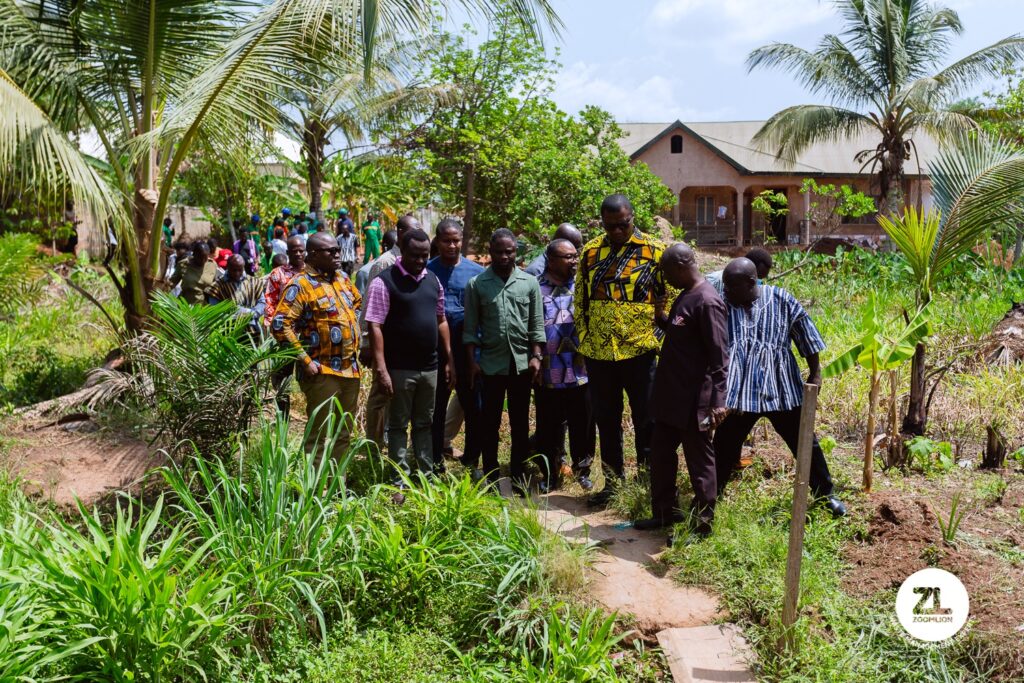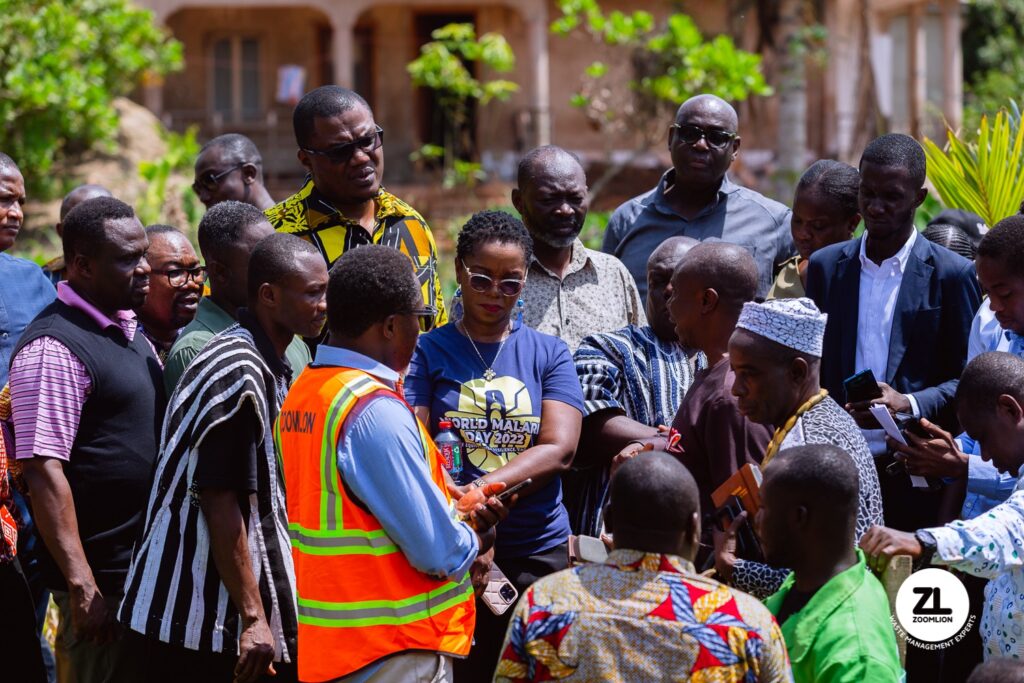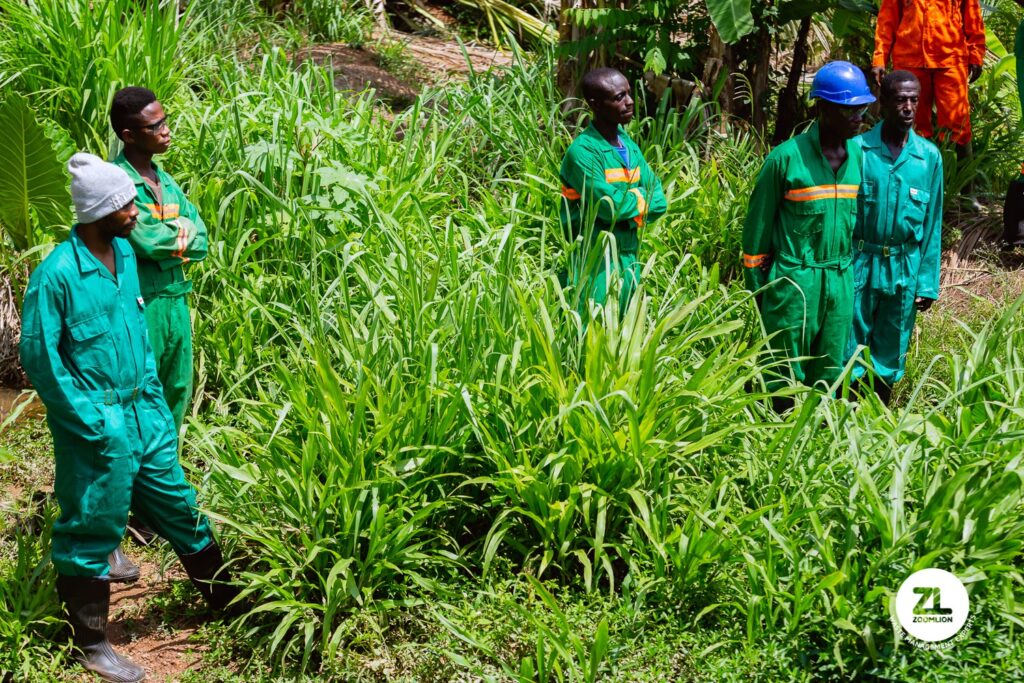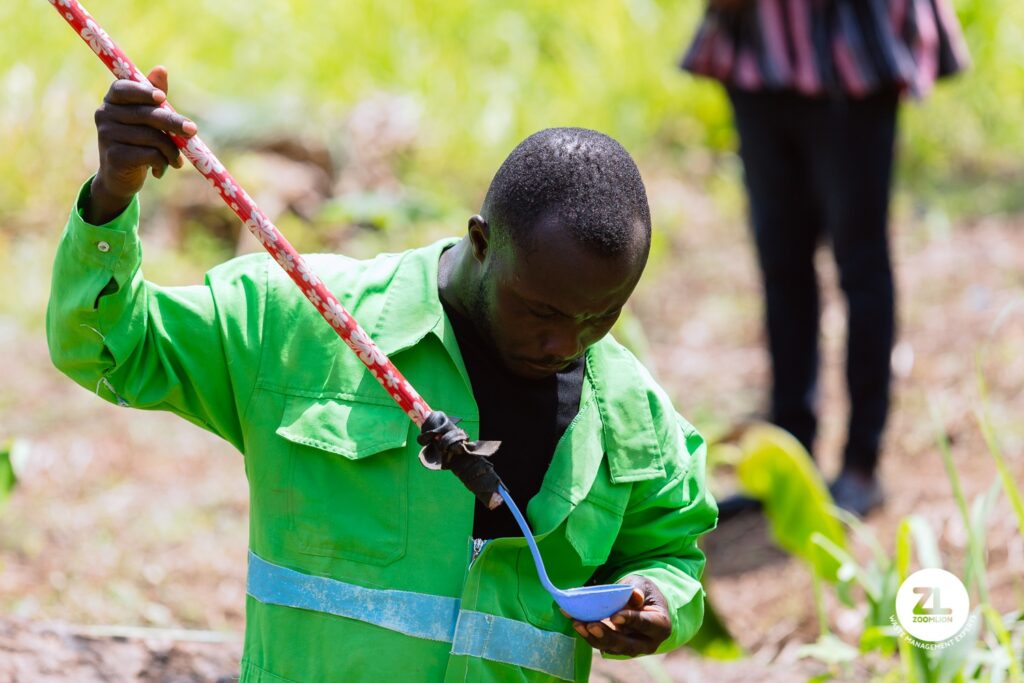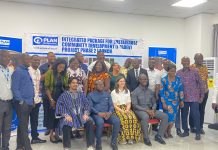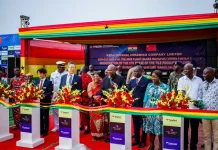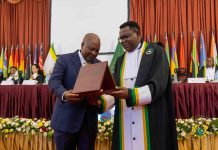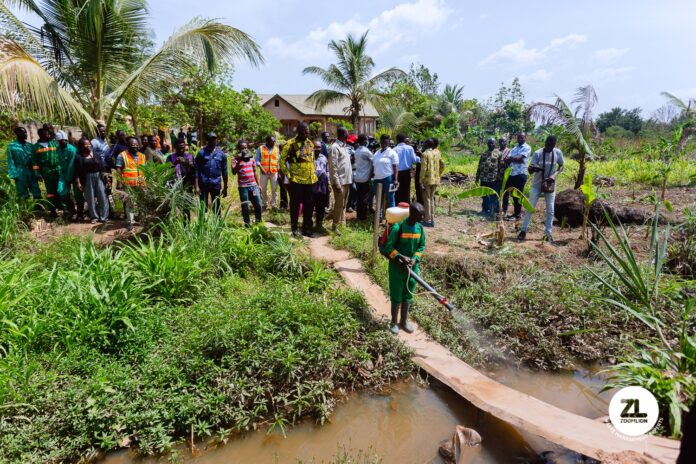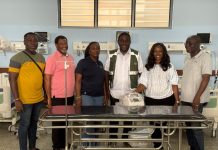The Parliamentary Select Committee on Health has toured some mosquito breeding sites in the Bono Region with a call on Zoomlion Ghana Limited (ZGL) to step up its larval control operation targeted at immature mosquitoes to help fight malaria in the country.
“Despite the gradual reduction of malaria cases from 19,000 to 21,000 and 16,000 in 2020, 2021, and 2022 respectively in the Berekum Municipal, we believe a lot of work needed to be done as well,” the chair of the Health Committee of Parliament, Dr Nana Ayew Afriyie, made the call during an inspection tour of some breeding sites in the Berekum Municipal, Bono Region, Wednesday, March 1, 2023.
The tour enabled the committee to get firsthand information about the larval control spraying operation of the Vector Control Services of ZGL which targets immature mosquitoes that may be developing in stagnant water.
The visit was also necessary because it will inform members of the committee in their deliberations to approve or otherwise of the budget for the project.
Addressing journalists after an inspection tour of some breeding sites in the Berekum Municipal, the chair of the Health Committee of Parliament, Dr Ayew Afriyie, said the committee decided to embark on the regional tour to ascertain the level of progress of work.
“As the people’s representatives, we are here to provide oversight, and see how the funds of the taxpayer is being applied when it gets to larvicidal control of malaria,” he said.
“We have a budget to approve. Normally, we will say the formula for the National Health Insurance Authority: it will be in the next two or three weeks. Before we approve the budget, we needed to see a few things and that include this larvicidal or vector control of malaria. We often, than not, in the year will make approval and that approval goes to a private company which is good. It is a PPP that is a modern trend of financing health practice which we all agree,” he went on to explain.
Furthermore, Dr Afriyie, who is the Member of Parliament (MP) for Effiduase Asokoroe, charged Zoomlion to involve more the staff of the National Malaria Control Programme (NMCP).
He underscored that NCMP was a part of the larval control operation of Zoomlion, adding that though the NMCP was to monitor the activities of Zoomlion, “it looks like there is a disengagement between the NMCP and the company.”
He made it clear that it was the committee’s responsibility to ensure value for money in the award of these contracts to private entities.
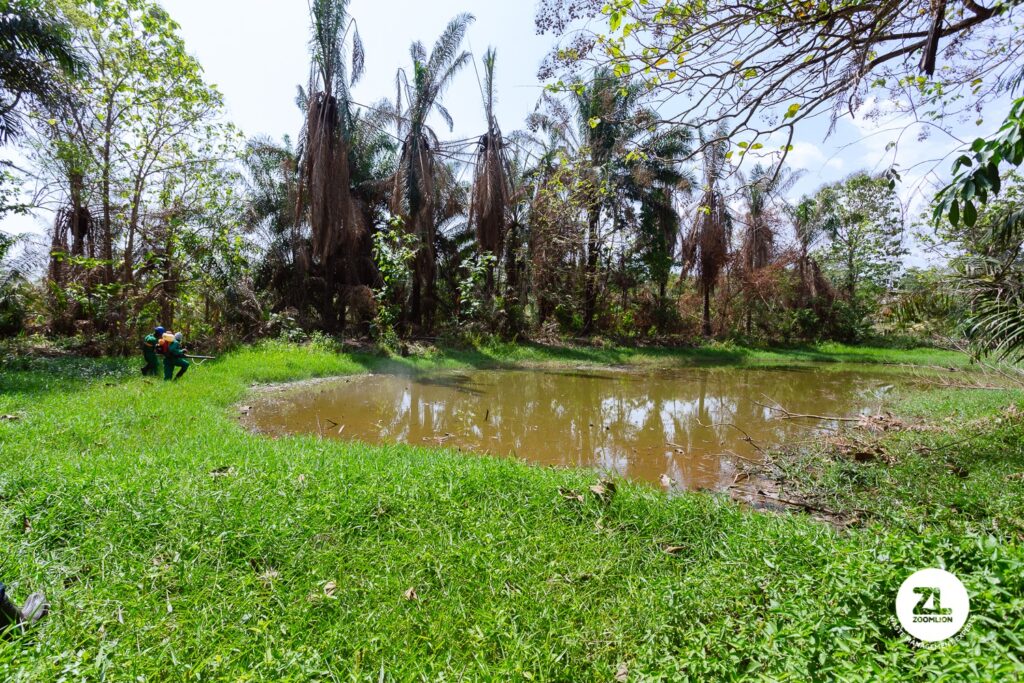
“So we may be having results, but scientifically we need to put a lot of things on paper so that when we come in here we can look at it as a matrix and checklist it. …but in all we need the community to have value for money,” he insisted.
However, Dr Ayew Afriyie pointed out that there were issues with the project that needed to be addressed.
These, he mentioned, included some of the mapped-out breeding sites not receiving continuous and effective spraying, and also the need for Zoomlion to have a schedule for the exercise.
The Ranking Member on the Committee and MP for Juaboso, Kwabena Mintah Akandoh, asked Zoomlion to critically look at the strength of its spraying workforce and their welfare, indicating that this can have an adverse impact on the output of the project.
For his part, the Malaria Focal Person in Berekum Municipal, Joseph Gyebi-Buaben, revealed that there has been a gradual reduction of malaria cases in the municipal in the last three years (2020, 2021, and 2022).
Giving the breakdown, he disclosed that in 2020, the Berekum Municipal recorded malaria of 19,000 which slightly went up to 21,000 in 2021 and then reduced to 16,000 in 2022.
The General Manager (GM) of Vector Control Services of ZGL, Reverend Ebenezer Kwame Addae, said they work in collaboration with Noguchi Memorial Institute for Medical Research (NMIMR) and NMCP, who is the supervising agency.
“What we do includes mapping of mosquito breeding sites after which we move in to do larviciding which is the application of Bacillus thuringiensis israelensis (Bti) to kill all the larvae that we see in the stagnant water so that they will not grow to become adult mosquitoes,” he elucidated.
According to him, the Bti they use has 28 residual period, but added that in the event of a heavy rain “we go back and apply the larvicide.”
“We operate with a minimum of 20 sprayers in most of the districts, albeit there are some districts that have between 30 and 40 sprayers depending on the size of the district or the municipal, adding that even some have 50,” he revealed.
Rev Addae, who is also in charge of the National Mosquito Programme (NMP), contended that reducing mosquito populations required a collective strategy.
“In controlling mosquitoes, it takes a collective strategy. It is not only one strategy that we use but what we do is to try and control the larvae. And you know there are so many sources which serve as breeding grounds for mosquitoes,” he noted.
He said his outfit undertakes its operations in the districts with Malaria Focal Persons (MFPs), and health and environmental officers as well.
“We do it in a scientific manner by first mapping the areas to know that yes it is feasible to apply the larvicide. If we map and we don’t see any larvae, we don’t work there. So we move from breeding site to breeding to site, that is, where there are stagnant water and when we get there we involve the community too in the exercise,” he stated.
He said the programme has been quite successful though he admitted that other interventions had also played a part.
“And this is evident in the statistics of reduced malaria cases in the Berekum Municipal as provided by the Malaria Focal Person in the Berekum Municipal,” he buttressed.
Rev. Addae used the opportunity to advise Ghanaians to get involved in reducing the mosquito populations in the country by ensuring that “we keep our environs clean and avoid the creation of stagnant water.”



